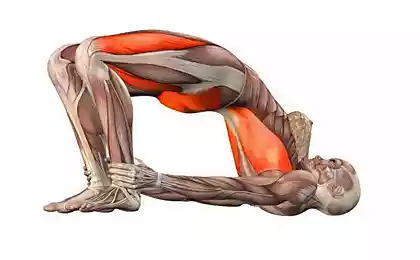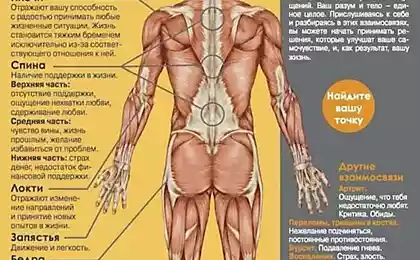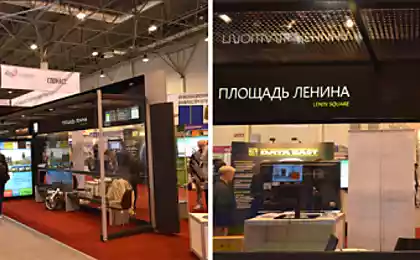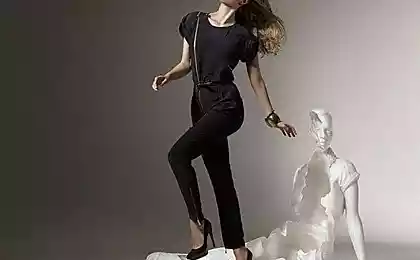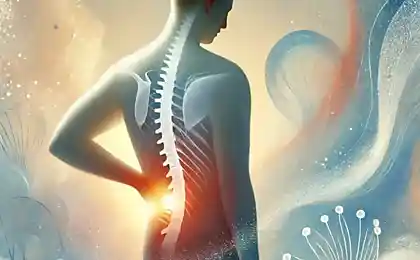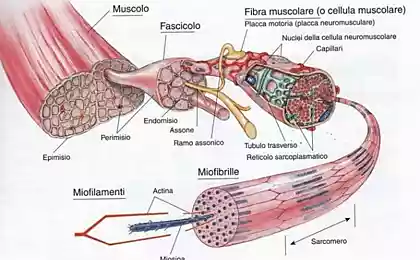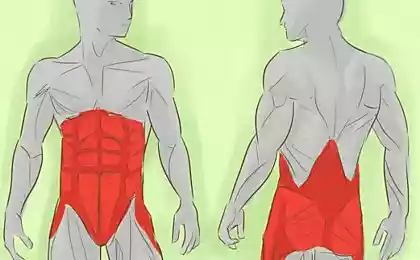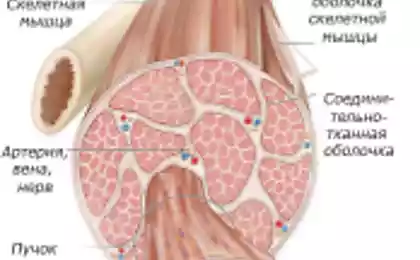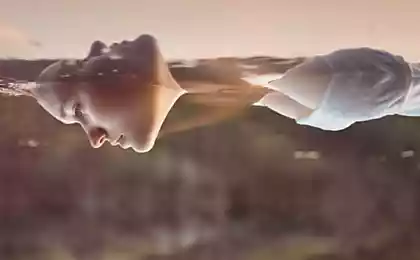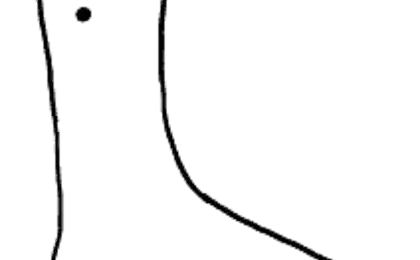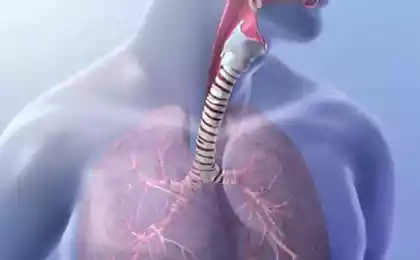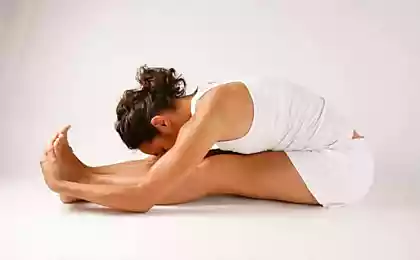531
7 segments of muscular armor, or that we don't know about muscle cramps
Eighty one million nine hundred forty six thousand four hundred thirty two
The neck area
The neck is a very important area, a kind of barrier, and the bridge between the conscious (mind) and the unconscious (body). Rationality peculiar to the Western culture, sometimes makes us over-reliant on their own mind. According to the American research studying how people perceive their body (called "body image"), head size in the internal representation takes on average 40-60% of the size of the body (while objectively, anatomically – about 12%). This "bias" is caused by excess mental activity, the ongoing "mental chatter", which gives the feeling that my head is full and it is impossible to recover or relax. Thus generated by the head texts "do not reach" to the body, and the body is simply ignored by consciousness – "the individual" kind of "Professor Dowell's head". In this case it is important to focus the client's attention on the signals given by the body to thoughts associated with the sensations.
There is a reverse version of the "cervical barrier": the sensations in the body are, and bright enough, but they are not interpreted, do not overlook the level of awareness. For this situation, there are different pain of psychosomatic origin, paresthesia, etc., the reasons for which people do not understand.
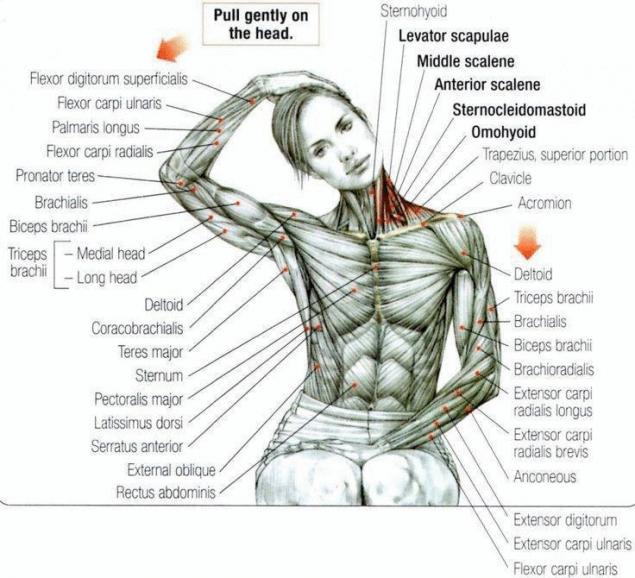
Throat area
Is localized in the region of the jugular notch and is associated with the blockage of emotions. Here reflect the problems of interaction with other people (communication) or with oneself (authenticity). Such a block can occur if a person gets into a situation when it is impossible to admit himself in some unpleasant truth or to do something that threatens to upset his identity ("if I do – it won't be me"). Also in this area reflects the inability of the ban on the realization of some important truths (i.e. the ban on uttering the meaningful text or prohibition of certain actions: "if I say/do, it won't be me"). Long-existing problems in this area threaten the development of thyroid diseases, asthma, bronchopulmonary disorders.
The middle of the sternum
This area is located behind the protruding bone of the sternum, below the jugular notch, and it is localized area of resentment. Subjective feelings here may be perceived as a lump, ball, clot, "stone heart". When this does occur, the channel congestion of the pericardium, there are a heart disorder. For a person with such a problem characterized by the specific expression – expressed nasolabial folds, drooping corners of her mouth – it all added up in a mask of distrust world of hurt.
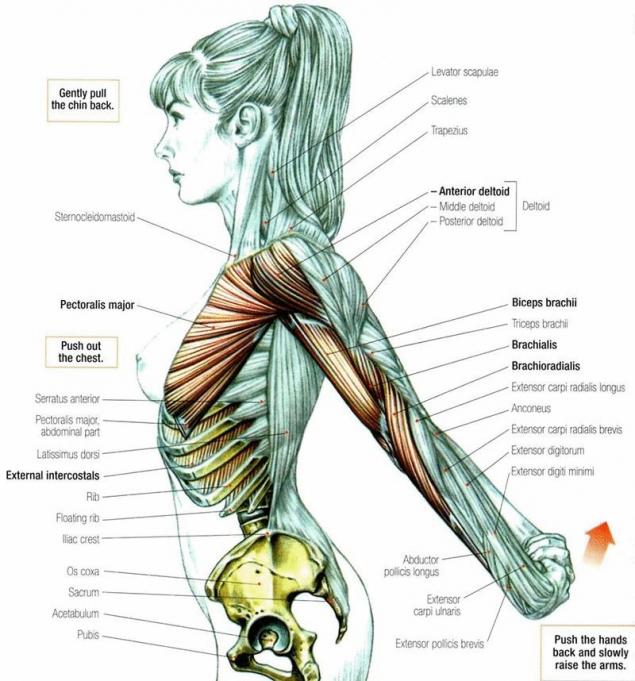
The center of the chest
According to the Eastern tradition, in the middle of the chest at heart level is the heart chakra, anahata is the center of love and emotional openness to the world. If in life there was no love, there is a different underlying feeling – longing, which causes pulling, sucking sensation in this area. Customers can also describe it as presence, a hard, compressed, cold, dark "substance." The defeat of this zone, usually associated with large-scale psychological trauma received in childhood, — first of all, with coldness of parents, child desertion, etc.
Diaphragmatic area
Captures the area of diaphragmatic muscle and the epigastric region. In body-oriented therapy, this area is associated with a lock, a ban on any expression of emotion – both good and bad. Also here rooted fears of financial distress and social maladjustment. When working with this area can be felt even when embroiled surround the abdomen. The tension here is like the feeling after hitting "below the belt" — the breath becomes less deep, "frozen" emotions, crying, laughing. Protective reaction of the organism to the formation of the clip (which will lead to stagnation of blood, lymph, etc.) often is the formation of fat cushions. Also there are often psychosomatic stomach ulcers, liver problems (in China, the liver was considered the source of anger), and gall bladder. Clip in diaphragmatic area is typical of people who seek to control everything, to keep. They are typically such turns of phrase as "I can't imagine this allow", "for all the pleasure you have to pay," etc. such people tend to constantly discuss what is happening, generate a mental construction, to see life through the prism of the schemes.
The umbilical area
This is the fear zone, which corresponds to the so-called "belt of the Reich", which includes the projection of the kidneys. The Chinese call the kidneys the "graveyard of emotions" and the source of cold. After working in this area (and is used here for a long "push" motion), the client may experience a redistribution of cold on the body.
Pelvic clamp
From behind it's rump, the buttocks, the crests of the iliac bones, the front – lower abdomen and inner thighs. Reich linked the pelvic clamp with a blocked sexuality. If as a result of sexual life is a deep discharge, giving a sense of integrity, then there is a profound spasticity, fat, congestion in the pelvic area. In the presence of a pelvic clamp a technique of working with body fat inconclusive, since, as already mentioned, they are formed as a protective reaction of the organism.
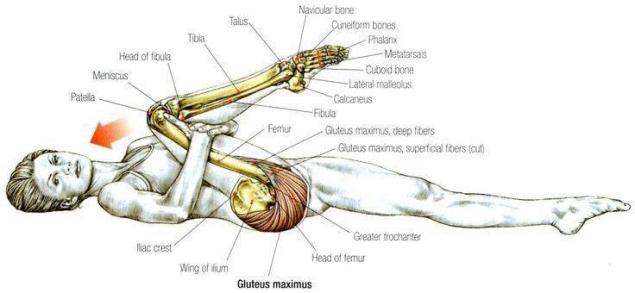
The frontal clip – (helmet bipolar), with constant, prolonged stress, General fatigue.
Jaw clamp – jaws compress (aggression).
The neck – digitalnet – concentration of feelings, the ambivalence of > duality.
Chest clip – Bronchitis, asthma, a zone of conflict between want and need. The middle of the chest area of resentment.
Diaphragmatic clamp – blocks emotions (holds it in, the area of psychosis).
Area of fear – Fear affects the kidneys and bladder.
Pelvic clamp – lower abdomen, the gluteal muscle.
Source: www.organic-people.com/
The neck area
The neck is a very important area, a kind of barrier, and the bridge between the conscious (mind) and the unconscious (body). Rationality peculiar to the Western culture, sometimes makes us over-reliant on their own mind. According to the American research studying how people perceive their body (called "body image"), head size in the internal representation takes on average 40-60% of the size of the body (while objectively, anatomically – about 12%). This "bias" is caused by excess mental activity, the ongoing "mental chatter", which gives the feeling that my head is full and it is impossible to recover or relax. Thus generated by the head texts "do not reach" to the body, and the body is simply ignored by consciousness – "the individual" kind of "Professor Dowell's head". In this case it is important to focus the client's attention on the signals given by the body to thoughts associated with the sensations.
There is a reverse version of the "cervical barrier": the sensations in the body are, and bright enough, but they are not interpreted, do not overlook the level of awareness. For this situation, there are different pain of psychosomatic origin, paresthesia, etc., the reasons for which people do not understand.

Throat area
Is localized in the region of the jugular notch and is associated with the blockage of emotions. Here reflect the problems of interaction with other people (communication) or with oneself (authenticity). Such a block can occur if a person gets into a situation when it is impossible to admit himself in some unpleasant truth or to do something that threatens to upset his identity ("if I do – it won't be me"). Also in this area reflects the inability of the ban on the realization of some important truths (i.e. the ban on uttering the meaningful text or prohibition of certain actions: "if I say/do, it won't be me"). Long-existing problems in this area threaten the development of thyroid diseases, asthma, bronchopulmonary disorders.
The middle of the sternum
This area is located behind the protruding bone of the sternum, below the jugular notch, and it is localized area of resentment. Subjective feelings here may be perceived as a lump, ball, clot, "stone heart". When this does occur, the channel congestion of the pericardium, there are a heart disorder. For a person with such a problem characterized by the specific expression – expressed nasolabial folds, drooping corners of her mouth – it all added up in a mask of distrust world of hurt.

The center of the chest
According to the Eastern tradition, in the middle of the chest at heart level is the heart chakra, anahata is the center of love and emotional openness to the world. If in life there was no love, there is a different underlying feeling – longing, which causes pulling, sucking sensation in this area. Customers can also describe it as presence, a hard, compressed, cold, dark "substance." The defeat of this zone, usually associated with large-scale psychological trauma received in childhood, — first of all, with coldness of parents, child desertion, etc.
Diaphragmatic area
Captures the area of diaphragmatic muscle and the epigastric region. In body-oriented therapy, this area is associated with a lock, a ban on any expression of emotion – both good and bad. Also here rooted fears of financial distress and social maladjustment. When working with this area can be felt even when embroiled surround the abdomen. The tension here is like the feeling after hitting "below the belt" — the breath becomes less deep, "frozen" emotions, crying, laughing. Protective reaction of the organism to the formation of the clip (which will lead to stagnation of blood, lymph, etc.) often is the formation of fat cushions. Also there are often psychosomatic stomach ulcers, liver problems (in China, the liver was considered the source of anger), and gall bladder. Clip in diaphragmatic area is typical of people who seek to control everything, to keep. They are typically such turns of phrase as "I can't imagine this allow", "for all the pleasure you have to pay," etc. such people tend to constantly discuss what is happening, generate a mental construction, to see life through the prism of the schemes.
The umbilical area
This is the fear zone, which corresponds to the so-called "belt of the Reich", which includes the projection of the kidneys. The Chinese call the kidneys the "graveyard of emotions" and the source of cold. After working in this area (and is used here for a long "push" motion), the client may experience a redistribution of cold on the body.
Pelvic clamp
From behind it's rump, the buttocks, the crests of the iliac bones, the front – lower abdomen and inner thighs. Reich linked the pelvic clamp with a blocked sexuality. If as a result of sexual life is a deep discharge, giving a sense of integrity, then there is a profound spasticity, fat, congestion in the pelvic area. In the presence of a pelvic clamp a technique of working with body fat inconclusive, since, as already mentioned, they are formed as a protective reaction of the organism.

The frontal clip – (helmet bipolar), with constant, prolonged stress, General fatigue.
Jaw clamp – jaws compress (aggression).
The neck – digitalnet – concentration of feelings, the ambivalence of > duality.
Chest clip – Bronchitis, asthma, a zone of conflict between want and need. The middle of the chest area of resentment.
Diaphragmatic clamp – blocks emotions (holds it in, the area of psychosis).
Area of fear – Fear affects the kidneys and bladder.
Pelvic clamp – lower abdomen, the gluteal muscle.
Source: www.organic-people.com/
Biologist Bill Andrews on telomeres and the cure for old age
In Yakutia, give portable solar power station

